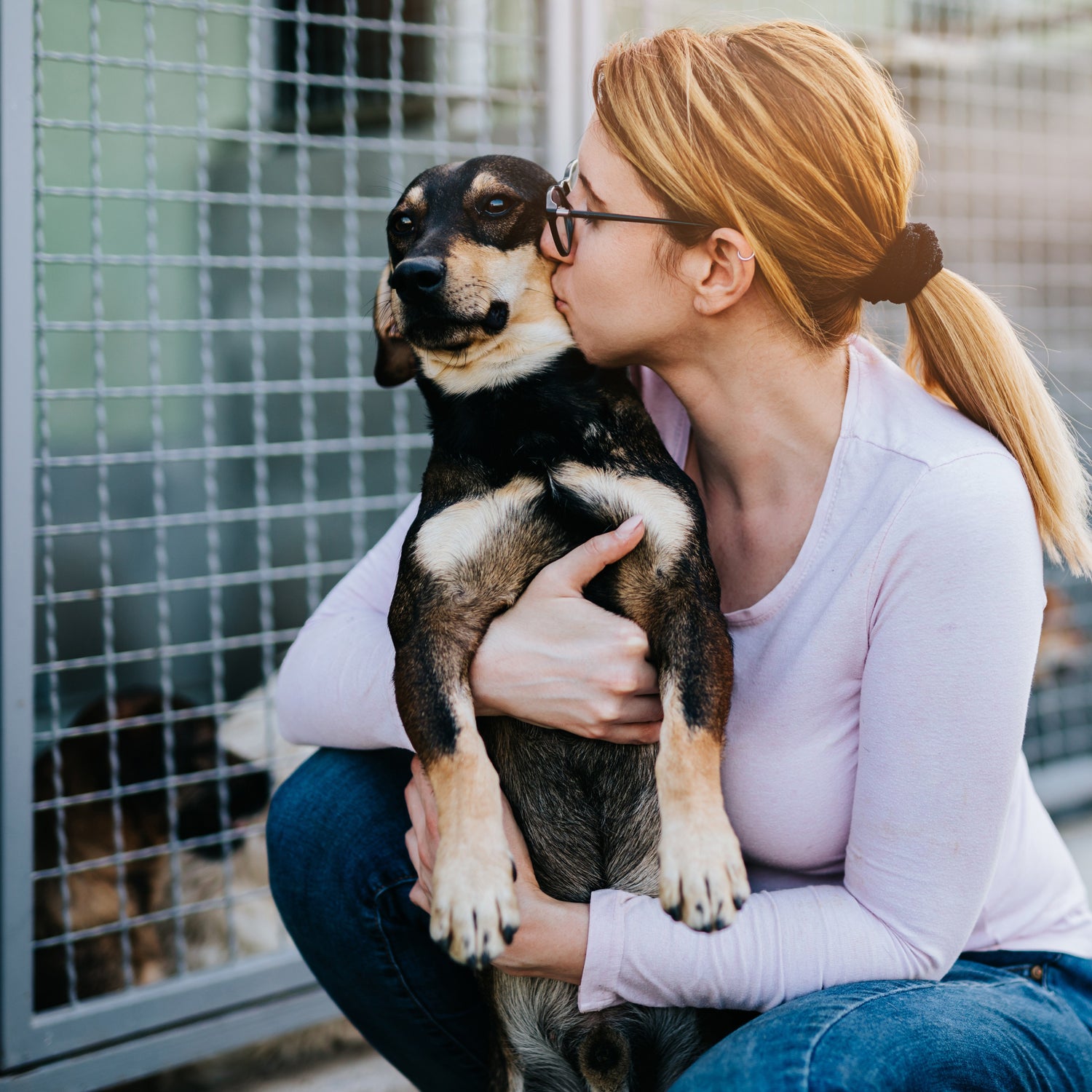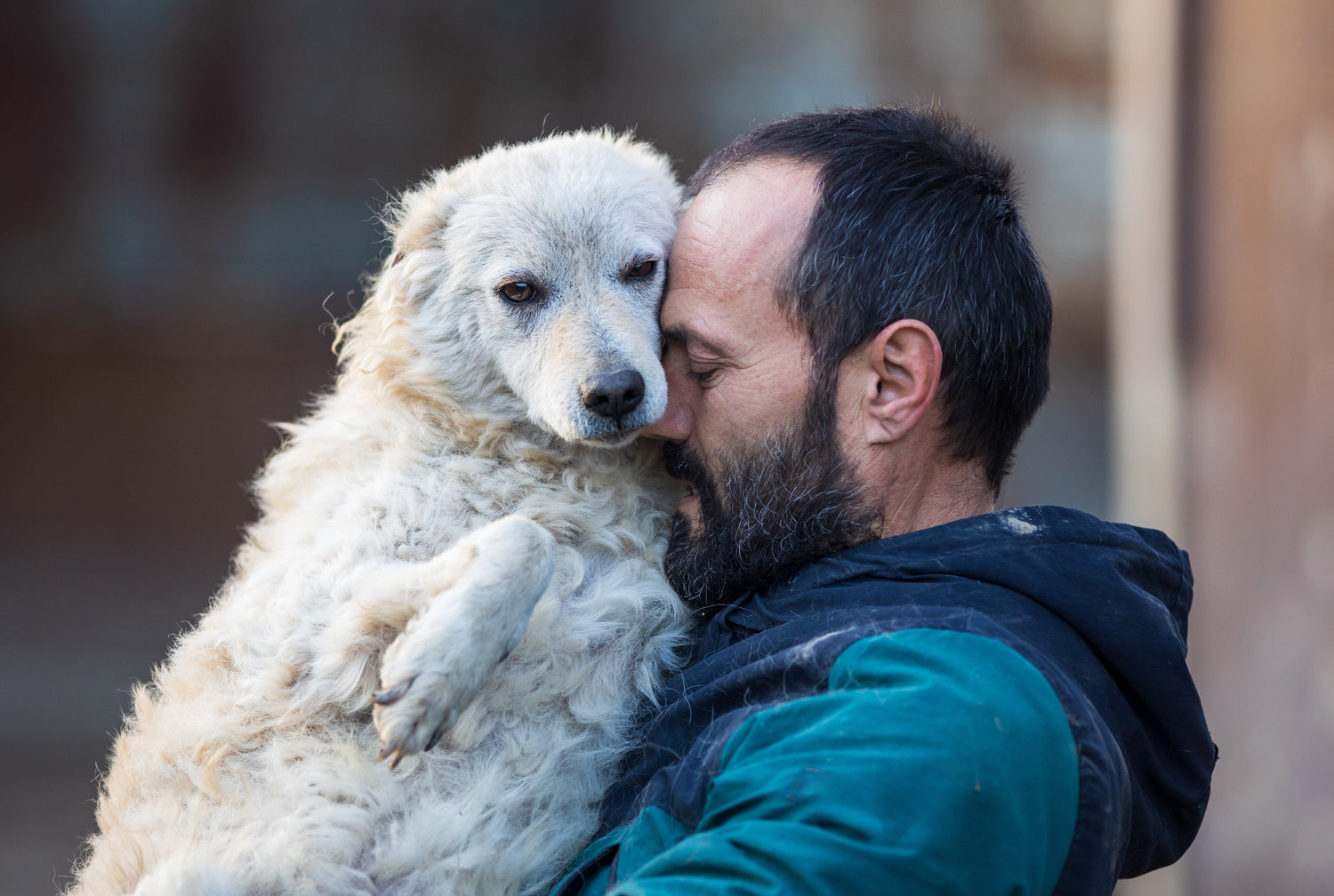Ways everyday people can help reduce shelter overcrowding
🐾 1. Adopt, Don’t Shop
Why it matters: Every adoption makes space for another animal in need. When you choose to adopt from a shelter or rescue rather than buying from breeders or pet stores, you're literally saving a life.
How to help:
Visit your local shelter or Petfinder.com to see adoptable pets.
Be open to older pets or those with minor medical issues—they’re often overlooked.
Share your adoption story on social media using hashtags like #AdoptDontShop or #RescueIsMyFavoriteBreed to inspire others.
🐾 2. Foster Pets Short-Term
Why it matters: Fostering opens up kennel space and gives animals a break from the stressful shelter environment. It also helps socialize them, making them more adoptable.
How to help:
Sign up with a local rescue group or city shelter to become a foster.
Even fostering for a weekend or two during peak intake times (like holidays or “kitten season”) can help tremendously.
Specialize in harder-to-place pets, like seniors or pets recovering from surgery, if you're up for it.
Example: Many shelters run “Sleepover” programs—take a dog home for a few nights to give them a break and help staff learn more about their personality.
🐾 3. Volunteer Your Time
Why it matters: Overburdened shelter staff rely on volunteers for dog-walking, cat socialization, cleaning, and more. Your time helps improve animals' well-being and makes them more adoptable.
How to help:
Volunteer at your local shelter weekly or monthly.
Offer specific skills—photography, grant writing, social media, carpentry (for building enrichment), etc.
Bring your friends or teens—many shelters welcome high school service hours.
🐾 4. Donate Supplies or Funds
Why it matters: Most shelters run on tight budgets. Donations help provide food, vaccines, bedding, and emergency care.
How to help:
Donate new or gently used blankets, towels, toys, cleaning supplies, and pet food.
Set up a recurring donation (even $5/month helps!).
Start a birthday fundraiser on Facebook or Instagram for a local shelter.
Pro Tip: Check the shelter’s Amazon or Chewy wish list and ship items directly to them.
🐾 5. Promote Shelter Pets Online
Why it matters: Social media is one of the most powerful tools for getting pets adopted. One share can save a life!
How to help:
Follow local shelters and rescues on social media.
Share posts of adoptable pets with a heartfelt message.
Tag friends looking for a pet or post a weekly “featured pet” to your story or feed.
Example Caption: “Meet Lenny 🐶 — a senior sweetheart who just wants a soft bed and a snuggle buddy. Adopt or share to help him find a home! 💛 #AdoptLenny #PawsomePets”
🐾 6. Host or Support Adoption Events
Why it matters: Events bring visibility to adoptable animals and reduce shelter populations faster.
How to help:
Partner with local businesses (coffee shops, breweries, pet stores) to host adoption events.
Help transport pets to/from events or volunteer as a handler.
Share the event with your community or attend and bring a friend.
Bonus: Some events waive adoption fees or offer discounts thanks to sponsors.
🐾 7. Help with Trap-Neuter-Return (TNR) for Community Cats
Why it matters: Outdoor and feral cats reproduce rapidly, contributing to kitten season overcrowding.
How to help:
Support local TNR efforts by volunteering or donating.
Borrow traps from rescues and help humanely trap, spay/neuter, and return community cats.
If TNR isn’t an option, report colonies to local rescue groups who specialize in this work.
Example: A single unspayed female cat and her offspring can produce over 400,000 cats in 7 years. TNR breaks this cycle humanely.
🐾 8. Sponsor a Pet
Why it matters: Some animals stay longer in shelters due to age, breed stigma, or medical needs. Sponsorships can help get them noticed and adopted.
How to help:
Donate toward an individual pet’s adoption fee to help lower the barrier for adopters.
Pay for a special pet’s grooming, training, or medical care to increase their chances.
Feature the pet on social media with a personal plea—include “Sponsored Adoption Fee” in your post.
🐾 9. Educate Others About Pet Responsibility
Why it matters: Many animals end up in shelters due to preventable issues like lack of training, housing problems, or accidental litters.
How to help:
Talk to friends and family about responsible pet ownership.
Share resources on spay/neuter, positive training, and long-term pet care.
Help people find alternatives to surrender (re-homing tips, food banks, etc.).
Resource Idea: Create and share a guide titled “Thinking of Rehoming Your Pet? Try These 5 Steps First.”
🐾 10. Support and Advocate for Pet-Friendly Housing
Why it matters: A significant number of pets are surrendered each year due to housing restrictions, especially breed bans or pet deposit issues.
How to help:
Advocate for more inclusive housing policies in your community.
Support local lawmakers working on pet-positive housing legislation.
Encourage landlords to allow pets by sharing responsible pet-owner testimonials or offering pet references.
🐾 11. Start or Support Transport Programs
Why it matters: Some shelters in rural areas are overrun, while urban or out-of-state shelters may have adopters waiting.
How to help:
Volunteer to drive animals to no-kill shelters or fosters across state lines.
Donate gas cards or crates to transport teams.
Host “pit stops” where drivers can safely rest and let pets stretch mid-journey.
Example: Many southern shelters send animals to the northeast where adoption demand is higher. Transport literally saves lives.
🐾 12. Become a Shelter Ambassador in Your Community
Why it matters: Small shelters don’t always have the resources to reach your neighborhood or school group—but you can!
How to help:
Distribute flyers at your local library, school, church, or pet store.
Speak at school clubs or scout groups about pet adoption and fostering.
Represent your local shelter at events or host info tables.
🐾 13. Adopt a Senior or Special-Needs Pet
Why it matters: These pets are often the last to be adopted and the first to be euthanized when space runs out.
How to help:
Give an older or differently-abled pet a loving home. They’re often calmer, already trained, and incredibly grateful.
Share stories of senior pet success to show others how wonderful they are.
Bonus: Many shelters waive or discount fees for senior pets or offer "Senior for Seniors" programs.
🐾 14. Create a Pet Pantry or Donate to One
Why it matters: Some families surrender pets simply because they can’t afford food or supplies.
How to help:
Organize a pet food drive in your neighborhood, school, or church.
Stock or donate to local pet pantries.
Partner with food banks to include pet items in care packages.
🐾 15. Speak Up for Shelter Pets
Why it matters: Awareness leads to action. Every voice matters in keeping shelter animals visible.
How to help:
Write letters to your local paper supporting animal welfare efforts.
Encourage your city to support spay/neuter, TNR, or pet microchipping ordinances.
Share your own journey with adoption or fostering to break the stigma around shelter pets.
💛 Final Thought:
You don’t have to rescue hundreds of pets to make a difference.
If you save one, foster one, share one, or support the system behind them—you’re helping solve shelter overcrowding.


The Reality
“They’re Waiting Behind Bars — Not Because They Did Anything Wrong”
Each year, more than 6 million pets enter shelters across the U.S.—many abandoned, abused, or simply forgotten.
Most are kind, loyal animals who’ve done nothing wrong—just waiting for a second chance.
But due to overcrowded shelters, limited resources, and a lack of public awareness, thousands are euthanized every single day. Their lives end not because they were unwanted… but because they were unseen.
You can be the reason that changes.
Whether it's through a donation, volunteering your time, or simply sharing their stories—you have the power to save lives.
Please, help them while there’s still time.
They need you now more than ever.

The Causes We Support
“What Your Support Helps Us Do”
Combat Shelter Overcrowding
We help fund local no-kill shelters, spay/neuter programs, and transport rescues from high-risk shelters to safe havens.
Promote Pet Adoption
Through social media campaigns and donations, we raise awareness about adoptable pets and support adoption events across the U.S.
Raise Awareness of Animal Abuse
We amplify the voices of neglected pets through storytelling and outreach, helping bring attention to abuse and strengthen cruelty laws.
Provide Critical Veterinary Care
We donate to emergency care funds for injured strays, senior pets, and victims of hoarding or abandonment.

“From Broken to Beloved: Stories of Hope”
Gage, my big brown ride-or-die, was found by Animal Services tied to a tree with a nylon ski rope. He had been left there for weeks.
When I first saw him at the shelter, he had just 48 hours left before he was scheduled to be euthanized. I didn’t even know he was there—until I felt a gentle lick on my leg through the bars. I looked down and saw those soulful eyes staring back at me, and in that instant, I knew. He needed me.
Today, Gage isn’t just man’s best friend. He’s my best friend.







